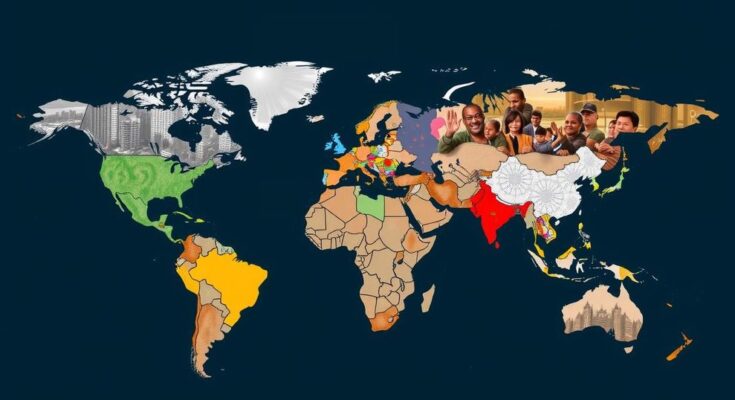The article details the record high fatalities among aid workers in 2024, ongoing humanitarian crises in Palestine, Lebanon, Haiti, Ukraine, and Guinea, and emphasizes the urgent need for international cooperation in safeguarding humanitarian efforts and delivering aid to affected populations. Under-Secretary-General Tom Fletcher’s call for elevated protection of humanitarian workers serves as a focal point for the discussion on humanitarian safety and operational access.
The year 2024 has marked a tragic record for the humanitarian sector, with a reported 281 aid workers having lost their lives this year alone, as highlighted by the United Nations’ Office for the Coordination of Humanitarian Affairs (OCHA). This statistic surpasses the previous year’s toll of 280 fatalities among humanitarian personnel. Under-Secretary-General for Humanitarian Affairs Tom Fletcher expressed deep concern over the increasing violence that aid workers face in conflict zones, urging governments and conflict parties to adhere to international law and ensure the protection of humanitarian staff.
In the Palestinian territory, ongoing Israeli military operations continue to exacerbate the suffering of civilians amidst heightened conflict. Recent reports indicate the destruction of homes and relentless violence in Gaza, where approximately 320 humanitarian workers have been killed since the outbreak of hostilities in October of last year. Humanitarian access remains critically restricted, limiting food and medical aid delivery just as winter approaches.
In Lebanon, airstrikes have resulted in significant civilian casualties and infrastructure damage. The WHO has documented over 137 attacks on health facilities since the beginning of this month. The current violence has forced the UN and humanitarian partners to provide urgent assistance, including food and shelter for the significantly displaced population, emphasizing the need for the protection of civilian life and healthcare workers.
Haiti is facing increasing violence as armed groups displace thousands from their homes, with recent reports indicating that over 40,000 individuals have been affected. Despite the challenges in delivering aid, the international community continues its humanitarian efforts, providing water, food, and medical support to the displaced. Meanwhile, the situation in Ukraine remains dire as ongoing hostilities and attacks on energy infrastructure have resulted in severe humanitarian needs this winter.
Finally, amid flooding in Guinea that has projected to affect over 175,000 individuals, the UN has allocated financial resources to support health, food, and education initiatives in the affected regions. The concentrated international response underscores the urgent need for humanitarian assistance across these diverse crises, each marked by significant challenges and the persistent attempts of aid agencies to provide relief.
This article examines the alarming increase in fatalities among humanitarian workers, the dire humanitarian conditions in conflict and disaster-stricken regions, including Palestine, Lebanon, Haiti, Ukraine, and Guinea. It highlights the multifaceted nature of humanitarian crises, characterized by violence against aid personnel, restricted access to essential services, and the urgent needs for safety and assistance among affected civilian populations. Each geographic area is impacted differently but shares a common thread of escalating suffering due to conflict and natural disasters.
In conclusion, the humanitarian landscape of 2024 is overshadowed by unprecedented violence against aid workers, rising casualty numbers, and debilitating conditions faced by civilians in conflict zones. The UN and humanitarian partners are striving to address these pressing needs, yet they require broader compliance with international humanitarian norms to safeguard those delivering critical aid. The international community must unite to prevent further escalation of violence and ensure that aid can reach those in dire need across various regions, striving for the protection of human rights and the dignity of all individuals affected by crises.
Original Source: www.unocha.org




